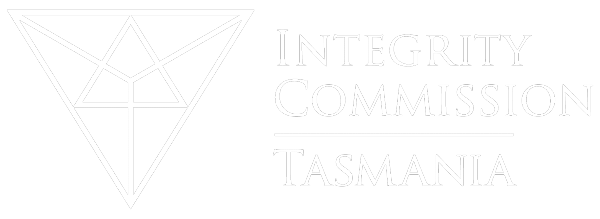The Integrity Commission notes the public debate surrounding its functions, powers and jurisdiction.
Public trust in the Commission impacts public trust in Government and the broader public sector, given our crucial role in preventing and investigating misconduct.
As an independent statutory authority, the Commission works within the powers of the Integrity Commission Act, and we agree that the majority of recommendations from the 2016 Independent Review should be implemented. The Commission has provided the Government with its suggested priorities and seeks to work with Government to identify the best outcomes.
Legislative changes and reforms to the Commission’s jurisdiction and powers lie exclusively with Parliament, not the Board of the Commission, the Chief Commissioner or the CEO.
The Commission would expect that any changes or expansion in scope, powers or jurisdiction passed by Parliament would be accompanied by commensurate resourcing. The recent 3-year increase in funding provided the Commission with the resources it requested, and has enabled the Commission to increase its activities in education, prevention and compliance. It is important for the Commission to increase its capacities at a sustainable rate, and for such increases to be based on organisational priorities.
Integrity Tribunals, already enabled in the Commission’s legislation, provide a pathway to progress findings of fact from investigations to findings of misconduct, though not to apply sanctions. The Board does not believe that additional power is required in this area. To date, the Board has been satisfied that our investigations have been sufficient to deal with matters, and that such a tribunal has not been required. To hold tribunals and public hearings where they do not assist an investigation may not only be an unnecessary use of resources but open them to be perceived as ‘show trials’.
Public hearings are one mechanism of Integrity Tribunals; they offer public insight into the machinery of justice, and allow for more robust public debate. This must be balanced with considerations of procedural fairness and the wellbeing of individuals involved in investigations. The Board is very aware of the potential for adverse, and occasionally tragic, personal outcomes that may arise from public inquiries into alleged misconduct.
It is difficult to directly compare interstate integrity and anti-corruption bodies. For example, the Commision has powers of oversight with Tasmania Police, unlike NSW ICAC. The WA CCC and QLD CCC hold dedicated functions to investigate crime, and particularly organised crime, unlike the Tasmanian Integrity Commission. Each of these powers and responsibilities require different structures and resourcing models; it is not possible to directly compare each entity.
The Centre for Public Integrity report released in 2021 ranked the Commission’s functions on par with Victoria’s IBAC and the NT ICAC, using different methods of comparison. To clarify the current reporting, the Commission has commenced 52 investigations since 2012, and as the Australia Institute reports, publicly released 17 investigation reports.
Media release by Greg Melick AO SC Chief Commissioner
Media contact
Michael Easton, Chief Executive Officer
contact@integrity.tas.gov.au
Ph: 1300 720 289
